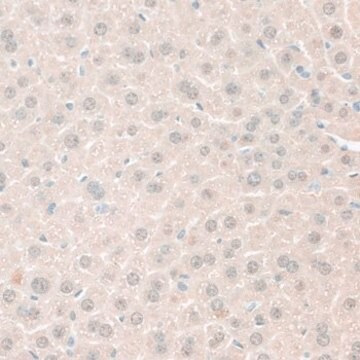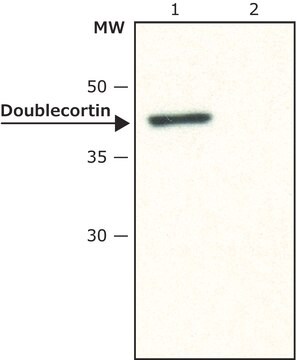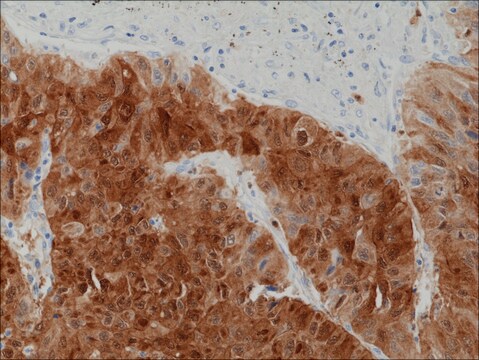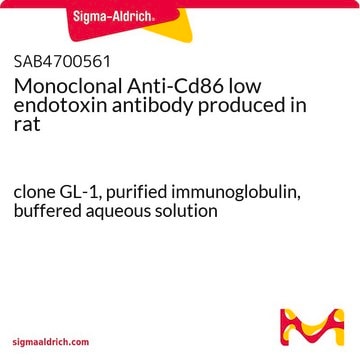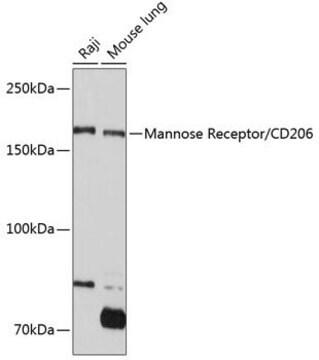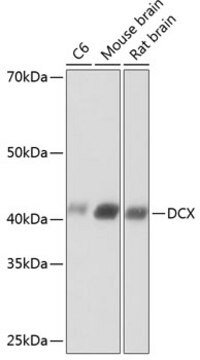SAB4200508
Anti-ARG1 antibody, Mouse monoclonal
clone ARG1-3, purified from hybridoma cell culture
Synonym(s):
Anti-arginase-1, Anti-liver-type arginase, Anti-type I arginase, Monoclonal Anti-ARG1 antibody produced in mouse
About This Item
Recommended Products
biological source
mouse
Quality Level
conjugate
unconjugated
antibody form
purified from hybridoma cell culture
antibody product type
primary antibodies
clone
ARG1-3, monoclonal
form
buffered aqueous solution
mol wt
antigen ~40 kDa
species reactivity
rat, human, mouse
concentration
~1.0 mg/mL
technique(s)
western blot: 2-4 μg/mL using whole extracts of rat or mouse liver.
UniProt accession no.
shipped in
dry ice
storage temp.
−20°C
target post-translational modification
unmodified
Gene Information
human ... ARG1(383)
General description
Immunogen
Application
Biochem/physiol Actions
Physical form
Disclaimer
Not finding the right product?
Try our Product Selector Tool.
recommended
Storage Class Code
12 - Non Combustible Liquids
WGK
WGK 1
Flash Point(F)
Not applicable
Flash Point(C)
Not applicable
Regulatory Listings
Regulatory Listings are mainly provided for chemical products. Only limited information can be provided here for non-chemical products. No entry means none of the components are listed. It is the user’s obligation to ensure the safe and legal use of the product.
JAN Code
SAB4200508-200UL:
SAB4200508-BULK:
SAB4200508-VAR:
Certificates of Analysis (COA)
Search for Certificates of Analysis (COA) by entering the products Lot/Batch Number. Lot and Batch Numbers can be found on a product’s label following the words ‘Lot’ or ‘Batch’.
Already Own This Product?
Find documentation for the products that you have recently purchased in the Document Library.
Our team of scientists has experience in all areas of research including Life Science, Material Science, Chemical Synthesis, Chromatography, Analytical and many others.
Contact Technical Service